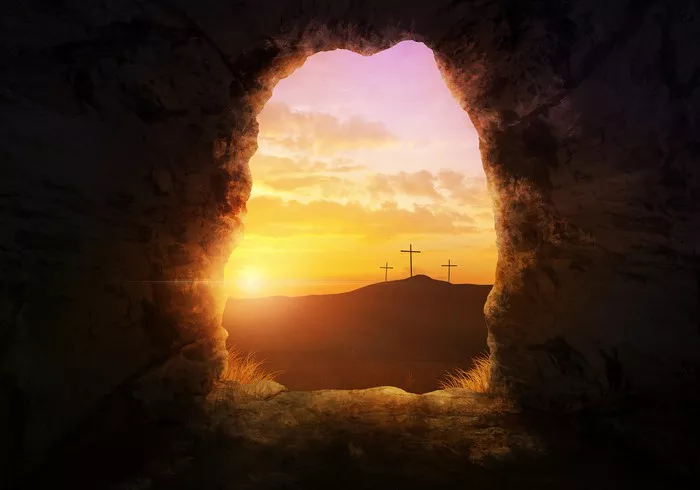Easter, one of the most significant festivals in Christianity, commemorates the resurrection of Jesus Christ. Rooted deeply in Christian tradition, Easter holds immense spiritual and theological importance. For believers, it symbolizes hope, redemption, and the triumph of life over death. The biblical narrative surrounding Easter unfolds a profound story of sacrifice, renewal, and divine love, providing spiritual nourishment and guidance for millions around the world.
The Paschal Narrative: Crucifixion and Resurrection
The core of Easter lies in the events surrounding the crucifixion and resurrection of Jesus Christ as depicted in the New Testament. According to the Gospels of Matthew, Mark, Luke, and John, Jesus, after being betrayed by Judas Iscariot, was arrested, tried, and crucified under the orders of Pontius Pilate, the Roman governor of Judea. The crucifixion, a brutal form of execution, is central to Christian theology as it represents Jesus’ sacrificial death for the atonement of humanity’s sins.
However, Easter is not merely about the crucifixion; it culminates in the resurrection of Jesus three days after his death. The resurrection, a miraculous event, signifies Jesus’ victory over death and his divine nature as the Son of God. It is this resurrection that forms the foundation of Christian faith, offering believers the promise of eternal life and salvation.
Old Testament Foreshadowing and Prophecy
The significance of Easter can also be traced back to the Old Testament, where various foreshadowings and prophecies allude to the coming of Jesus Christ and the events of Easter. One notable example is the Passover, an ancient Jewish festival commemorating the liberation of the Israelites from slavery in Egypt. The Passover lamb, whose blood protected the Israelites from the Angel of Death, prefigures Jesus as the sacrificial Lamb of God whose blood brings salvation and deliverance from sin.
Additionally, numerous prophecies in the Old Testament foretell specific details of Jesus’ suffering, death, and resurrection. For instance, Isaiah 53 vividly describes the suffering servant who would be “pierced for our transgressions” and “crushed for our iniquities,” anticipating Jesus’ sacrificial death on the cross. The Psalms also contain Messianic prophecies that resonate with the Easter narrative, such as Psalm 22, which prophetically depicts the agony of crucifixion and the hope of vindication.
The Gospel Accounts: Easter in the New Testament
The four Gospels—Matthew, Mark, Luke, and John—offer detailed accounts of Jesus’ crucifixion and resurrection, each providing unique perspectives and emphases. Despite variations in details, the core message remains consistent: Jesus died for the sins of humanity and rose from the dead, demonstrating his victory over sin and death.
Matthew’s Gospel emphasizes the fulfillment of Old Testament prophecies and highlights Jesus’ role as the promised Messiah. Mark’s Gospel portrays the suffering of Jesus with vivid imagery, emphasizing his abandonment and isolation on the cross. Luke’s Gospel underscores the universal scope of salvation, portraying Jesus as the Savior of all people, including the marginalized and the outcasts. John’s Gospel delves deeply into the theological significance of Easter, emphasizing the divine nature of Jesus and the transformative power of his resurrection.
Theological Implications: Atonement and Redemption
At the heart of Easter lies the theological concept of atonement—the reconciliation of humanity with God through Jesus’ sacrificial death. According to Christian doctrine, Jesus’ death on the cross serves as a substitutionary atonement, where he pays the penalty for human sin on behalf of all humanity. This act of divine love and mercy offers forgiveness and redemption to those who believe in Jesus Christ.
Moreover, Easter signifies not only the forgiveness of sins but also the promise of new life and spiritual renewal. Just as Jesus was raised from the dead, believers are called to experience a spiritual resurrection, dying to their old selves and being born anew in Christ. This transformative journey of faith leads to reconciliation with God and the empowerment to live a life of holiness and righteousness.
Celebrating Easter: Tradition and Symbolism
The celebration of Easter is marked by various traditions and symbols that encapsulate its spiritual significance. One prominent symbol is the Easter egg, which represents new life and resurrection. The custom of decorating eggs dates back to ancient times and has been adopted by Christians as a symbol of Jesus’ resurrection from the tomb.
Similarly, the Easter lily, with its pure white petals, symbolizes purity, innocence, and the resurrection of Jesus. Churches often adorn their sanctuaries with lilies during the Easter season as a visual reminder of the hope and new life found in Christ.
Easter Sunday, the culmination of the Holy Week, is typically observed with special church services, including sunrise services, where believers gather to celebrate the resurrection of Jesus. The joyous proclamation, “Christ is risen! He is risen indeed!” resounds throughout churches worldwide, affirming the central tenet of the Christian faith.
Conclusion
In conclusion, Easter holds profound significance in the Christian faith, encapsulating the core beliefs of redemption, renewal, and resurrection. The biblical narrative of Easter, rooted in both the Old and New Testaments, offers believers a rich tapestry of spiritual truths and theological insights. From the crucifixion to the resurrection, Easter proclaims the message of God’s love, grace, and salvation for all humanity. As Christians around the world celebrate Easter, they are reminded of the transformative power of Jesus’ death and resurrection and the hope of eternal life found in him.

